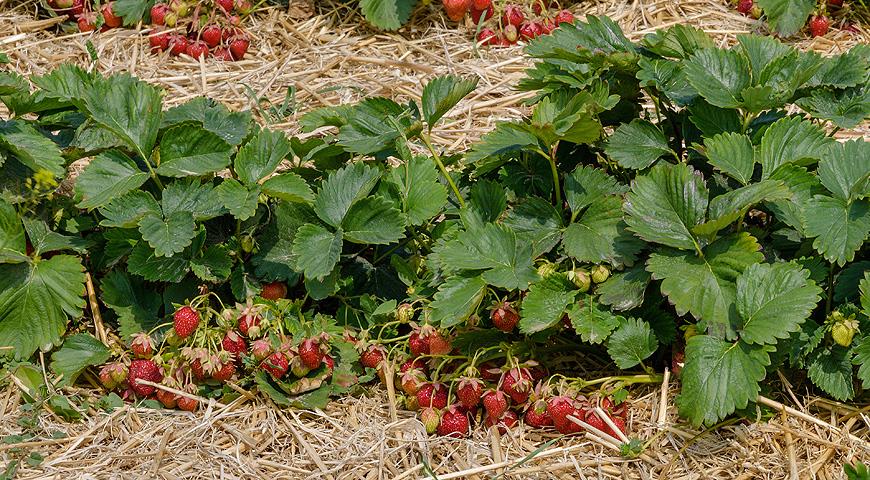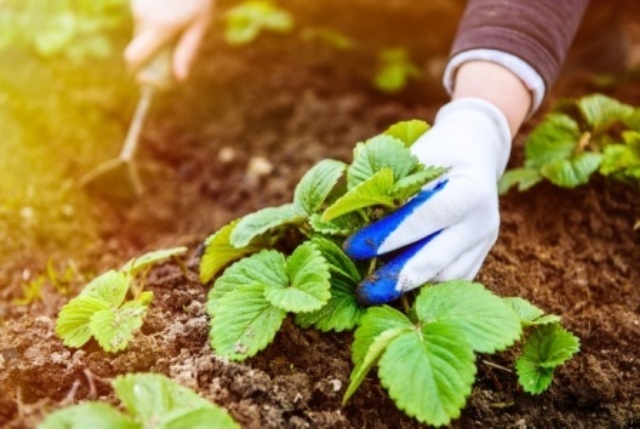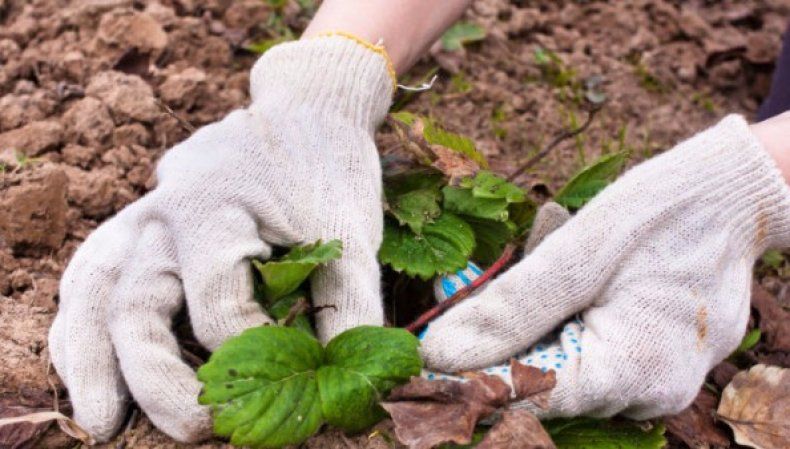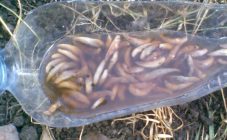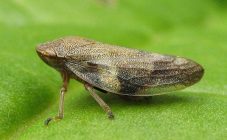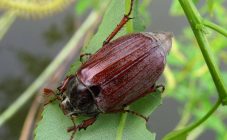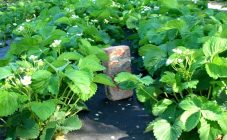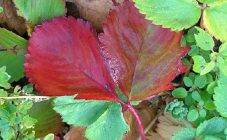Content:
Strawberries, or garden strawberries, are a favorite inhabitant of a summer cottage. What a disappointment, when instead of juicy, appetizing berries, empty flowers flaunt on it. There are many reasons for their occurrence, the fight against them must be started as soon as possible.
Strawberry growing conditions
Improper agricultural practices can cause colossal damage to the plant.
Prerequisites for a good strawberry yield:
- Choice of soil: the highest yield is produced by a berry grown on a soil rich in humus with a neutral or slightly acidic reaction; poorly tolerates saline, limestone soils and close occurrence of groundwater;
- The location of the garden: the most delicious, juicy berries grow on smooth irrigated areas not deprived of sunlight; protection from strong winds is important - they interfere with full-fledged pollination, take moisture; strawberries, capricious to neighbors, do not welcome peppers, tomatoes, eggplants and potatoes; being close to large trees interferes with the development of the plant;
- Irrigation: watering is carried out at least 2-3 per week, during the flowering period it must be reduced, and with sufficiently moist soil, stop altogether;
- Mulching: retains moisture, prevents weeds from growing, prevents ripe berries from rotting; it is recommended to mulch strawberries during the formation of ovaries; straw (wheat, rye) is best suited for this;
- Top dressing: you need to feed the strawberries for the first time after 3 leaves have opened (urea, Amofoska, chicken droppings); the second is advisable when flowering, the plant needs potassium; the last top dressing is obligatory for weakened plantings for a successful wintering (mullein, "Kemira Osennyaya");
- Protection against pests: tender strawberries are susceptible to attacks by strawberry, spider mites, aphids, nematodes, ants; special chemical agents or folk methods will help to combat them;
- Pruning dry, damaged leaves, whiskers;
- Proper preparation for winter.
Why is the barren bloom formed?
Barren flowers can be formed as a result of many factors.
The main causes of barren flowers on strawberries:
- abundant rains during the flowering period, which washed away a large part of the pollen and became an obstacle to full pollination by insects;
- improper watering during flowering - a strong stream could also wash off the pollen;
- frosts: freezing of the middle of the flower as a result of spring temperature jumps (the ovary, flowers and buds are damaged already at a temperature of -1.5 ° C, old bushes are especially weak in this regard);
- hot weather for a long time (+ 30 ° C);
- an invasion of a weevil, which mercilessly gnaws at the bases of flowers;
- infection with a viral infection;
- poor soil of the garden, long absence of fertilizers;
- excess nitrogenous fertilizing before the beginning of flowering culture;
- infrequent watering with prolonged dry periods;
- old planting (bushes are renewed every 3-5 years);
- incorrect crop rotation;
- lack of light: the sun's rays play an important role in the correct laying of flower buds;
- dioecious varieties: male bushes do not form fruit, only bloom; females may be left without a pollinator if there are no “male” bushes nearby;
- a poor-yielding variety - for example, Gigantella, has large, but rare fruits;
- weed varieties: they give impressively developed bushes, solid foliage and many barren flowers, but they do not form ovaries, the flowers wrinkle and fall off over time (Dubnyak, Zhmurka, Bakhmutka).
A strawberry garden left for a long time without proper care grows by itself, drops overripe berries into the soil, from which young bushes of false strawberries subsequently grow. There are also a lot of barren flowers on such bushes, because the correct reproduction of strawberries takes place with the help of a mustache or by dividing the bush. The strawberries are degenerating.
Getting rid of the wasteland
Wasteland appeared on strawberries what to do? To take the correct and really necessary actions, it is necessary to understand why the barren flowers appeared, which sometimes becomes too problematic. They consistently analyze all the actions carried out in relation to the strawberries, analyze the situation, recall whether there were frosts in the spring, how the feeding was carried out. A reason not found in time can ruin the entire landing.
Many problems can be solved: if not this year, then next season, with proper care, strawberries will bear fruit.
The first step is to do a thorough inspection of the plant.
Detection:
- Accreted or abnormal color of stamens and pistils indicates a viral infection of the bushes. In this case, there is only one way out - to completely get rid of the bushes, pluck and burn the strawberries. In the place where the infected strawberry grew, it is advisable not to plant new bushes, and if there is nowhere else, then the soil should be well disinfected.
- Holey leaves, bitten buds indicate the vital activity of the strawberry weevil. In this case, it is already pointless to fight it, since the females probably managed to lay eggs in the buds, and there will definitely be no fruit. In the spring, the bushes are treated with insecticides.
- Red, misshapen pedicels signal the action of the nematode. The bushes must be completely removed, the earth must be disinfected so that the worm does not hit the entire planting.
Weed bush
If the correct agricultural techniques and preventive measures against pests do not give significant results and there are still a lot of barren flowers, then, for sure, a pest bush has started up on the plantation (which could have gotten through purchased seedlings).
Depending on the variety, the weed bush may look different.
Zhmurka is distinguished by low bushes with wrinkled leaves, blooms well, but does not form an ovary, the flowers dry up. Dubnyak does not form peduncles at all. Bakhmutka and Suspension bloom, then form small berries.
Bushes completely remove pests.
Prevention of barren flowers
Proper care of strawberries significantly reduces the risk of barren flowers: regular watering, weeding, proper organization of planting (at least 50 cm between bushes). Wintering conditions, quality of insulation and frost resistance of the variety are of no small importance.
In addition to the above recommendations, you need:
- free-growing planting, over-planted strawberries lack nutrients, light;
- get rid of overgrown whiskers and leaves in time;
- destruction of damaged, deformed berries;
- rejuvenation of planting or relocation of bushes every 3-4 years.
Many of the factors that hinder the development of strawberry ovaries after good flowering can be prevented. If time is lost at the moment, and it is no longer possible to do anything, it is important to learn from this experience so as not to face similar problems in the future.Undoubtedly, proper care and proper agricultural technology are the key to high yields and excellent taste characteristics of the fruits.
